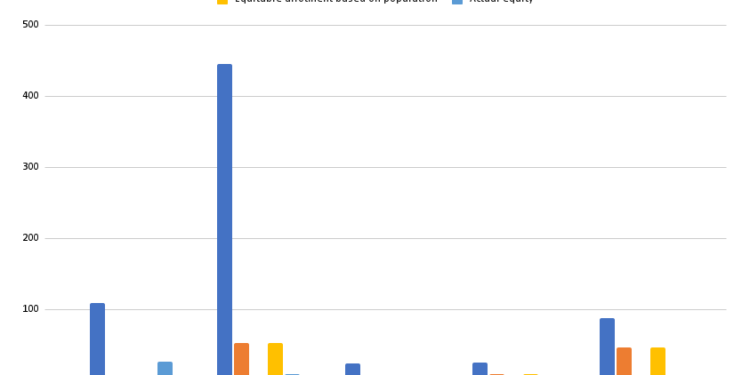The State Department is failing to recruit a Foreign Service that fully represents the American people, as required by the Foreign Service Act of 1980. One of State’s most glaring recruitment shortcomings is its inability to hire new Foreign Service officers (FSOs) who come from all geographic regions of America. This ongoing failure helps to perpetuate the mindset of the current Foreign Service and shape its policy attitudes.
Fielding a U.S. diplomatic and consular corps that truly reflects the geographic diversity and values of the American people, and not just elite foreign-policy opinion, will require Congress to end the State Department’s hiring monopoly.
Congress should change the law so that FSOs are recruited and qualified in a process similar to congressional appointments to the U.S. service academies. Empowering senators and congressmen to appoint qualified FSO candidates, recruited in their states and districts, would ensure a Foreign Service that is genuinely “representative of the American people,” as required by the law.
An invigorated, congressionally-led nomination process could easily meet State’s quotas for new FSOs who can pass the entrance exam and meet high standards of knowledge, professionalism, and integrity. Ending State’s hiring monopoly and transferring that selection authority to senators and congressmen, supported by their state and district offices, would initiate new interest in the career and potentially bring hundreds of Americans, currently overlooked in “fly-over” regions, into the Foreign Service.
Historically, the congressional appointment process to West Point, Annapolis, and the other academies has served to counter elitist tendencies. It was crucial to democratizing and interweaving all aspects of American society into the U.S. military officer corps, and it would do the same for the Foreign Service. FSOs from diverse geographic backgrounds will bring the mosaic of American values, different political points of view, and genuine racial and ethnic diversity that the Foreign Service so desperately needs.
Consider the data. An analysis of the 2,013 FSO appointments made over the past seven years reveals the alarming geographic imbalance in current State Department recruiting. Four states plus the District of Columbia, with a combined population of about 19 million, produced a staggering 691 new FSOs, more than a third of the total.

By contrast, five of the most underrepresented states (Indiana, Arkansas, Rhode Island, Louisiana and Mississippi), also with a combined population near 19 million, produced only 16 FSOs. While one in six thousand residents in D.C. became a diplomat, the odds were worse than one in a million for applicants from some states. Considering their state’s population, five North Dakotans should have been hired during this period, yet in seven years, State failed to recruit even one resident as an FSO.
It is no surprise that 2023 public records indicate no senior State Department recruiters even went to ten states: Arkansas, Idaho, Nebraska, North Dakota, Montana, South Dakota, Utah, Vermont, West Virginia, and Wyoming.
Monopoly and privilege fiercely resist change. State’s current hiring system also serves to perpetuate the department’s political biases, wherein senior diplomats recruit new officers who are cut from the same cloth. Of the same group of 2,013 FSOs hired over the past seven years, 608 joined the service from DC, Virginia, and Maryland, reflecting that about 30 percent of all newcomers were probably young careerists already in the Washington foreign-policy world of think tanks, NGOs, and federal government jobs.
At the same time, these same Metro Washington–area recruits, as well as the lion’s share of those who come from outside the Beltway, are almost all products of university graduate schools that overwhelmingly inculcate the left-liberal political values of those institutions. Most graduate school foreign-affairs professors, who direct many students to Foreign Service careers, are committed disciples of the Obama-Biden internationalist view of America’s role in the world.
Thus, all these new officers are already pre-programmed to take their place in Washington’s foreign-policy establishment. No matter what new administration the American people might elect, these careerists are all schooled in the same “interagency process” (to use the vernacular) of shaping U.S. foreign policy in a manner that often protects government’s institutional interests, not the country’s. To change Washington’s default tendency, for example, that all international crises must be met with U.S. resources, engagement and leadership—no matter the national interest—requires injecting new values and new thinking into our diplomatic corps.
Most damning, consider the 2016 presidential voting outcome, which revealed an American public basically evenly divided between Republicans and Democrats. To no one’s surprise, the record of financial contributions to the two candidates made by employees at Foggy Bottom was monumentally one-sided. State Department employees provided the Trump campaign a total of 39 contributions, while they gave Hillary Clinton 2,518 donations.
Meanwhile, the situation at Foggy Bottom becomes worse with each new FSO A-100 entering class and with ongoing civil service hiring. Not only is the Obama-Biden internationalist perspective the default position of new State hires, the status quo has been further hijacked by the ongoing imposition of a radical vision of “diversity, equity, inclusion, and accessibility (DEIA).”
This DEIA agenda is all about imposing quotas and identity politics on the department, and it has nothing to do with hiring new officers with a diversity of policy views or who fairly reflect the geographic distribution of the American people. Those core elements are very much not part of the DEIA agenda.
Embracing the Biden administration’s DEIA tenets has become mandatory for entering—and maintaining—employment at Foggy Bottom. Per Executive Order 14035, DEIA Kommissars are well-established in State—indeed, across the federal workforce—and embracing the Biden version of “social justice” inside the bureaucracy has become one of the core building blocks of federal employment.
The State Department is among the worst offenders as DEIA ideology commands all the career staff, how they view their colleagues, and the performance of their duties. In one recent instance, an event “intended only for women of color” was promoted through official department channels. How many lawsuits would (rightfully) be filed if the genders and racial identities had been reversed? Just as bad, aspects of this divisive ideology have also been shoehorned into regular U.S. diplomacy with foreign partners.

The department’s recent deployment of artificial intelligence to screen applicants for the Foreign Service, labeled innocuously as the “computer-QEP,” raises significant questions of political bias. Particularly concerning, this AI was added to the screening processes during a major overhaul primarily intended to increase the number of DEIA-aligned applicants who make the final cut. Protecting its monopoly to hire, State has refused to grant anyone with oversight authority, even union officials, access to the underlying code in order to ensure fairness in selection.
By controlling the intake of new FSOs, as well as using extreme DEIA ideology in making promotions and career-enhancing assignments, Secretary Blinken and his department leadership are continuing to resist the authentically diverse mandate spelled out in the Foreign Service Act of 1980. The objective of that statute was to build a professional diplomatic corps that represented the American people and “operated on the basis of merit principles.”
While it is true that the 1980 Act acknowledged that “affirmative action” could be a tool, it did not open the door to today’s DEIA extremism. In the face of what Blinken is doing, Congress has no alternative but to end State’s hiring monopoly and re-make its promotion authority. Both are ignoring merit principles the law requires:
The objective of this Act is to strengthen and improve the Foreign Service of the United States by assuring, in accordance with merit principles admission through impartial [emphasis added] and rigorous examination, acquisition of career status only by those who have demonstrated their fitness through successful completion of probationary assignments, effective career development, advancement and retention of the ablest, and separation of those who do not meet the requisite standards of performance (Sec. 101(b)(1)).
DEIA is just the latest expression of diplomatic elitism that often corrupts State and runs counter to the best interests of the country. Too many at State believe their mission is not about representing U.S. values in international affairs, but about instructing out-of-step Americans to change their outdated attitudes.
Thus, the DEIA phenomenon is part of a larger more deep-seated problem of elitism at State. Henry Kissinger, writing in his memoirs decades ago, reflected that State careerists often had a “supercilious attitude” that would lead them to put aside the national interest as the lodestar of U.S. foreign policy.
In an honest assessment of the Foreign Service, Kissinger pointed to a weakness that continues to this day: the tendency of State officials to remake instructions from their political leadership instead of implement them. Kissinger wrote:
Subscribe Today
Get daily emails in your inbox
The Foreign Service has the best personnel among American public officials—dedicated, well informed, and, if led decisively, highly disciplined. But they start from the conviction that their elected or appointed chiefs could probably not have passed the Foreign Service examination. Hence, they consider it their duty to persuade the Secretary and the President to their point of view and, failing that, to maneuver bureaucratically and with the media in such a way that their superior knowledge prevails by indirection. Their convictions are conventionally Wilsonian [emphasis added]; diplomacy and power are often treated as discrete realms—and diplomacy as separate from any other enmeshed in the area of national policies.
Kissinger is right on the mark when he labels most FSOs as committed foreign-policy Wilsonians. That Wilsonian perspective, of course, more often than not, gives FSOs vast common ground with internationalist Democrats. Some FSOs may be Wilsonians of the right, even comfortable with aggressive neocon perspectives, but most are Wilsonians of the left, and both groups have little patience for those who see America’s role in the world in restrained, non-Wilsonian terms. It is past time for congressional planners to take up the cause of re-legislating the Foreign Service Act of 1980 to end State’s hiring monopoly. Involving Congress in selecting and qualifying new FSO candidates will bring the State Department authentic diversity in thought and values. Senators and congressmen selecting officer candidates will guarantee geographic distribution in commissioning new FSOs; it will bring authentic racial and ethnic diversity, not the phony quotas that Blinken’s Kommissars are imposing.
It may be the only way to ensure that Foreign Service officers, like their military officer counterparts, truly reflect the values of modern America.
Shop For Night Vision | See more…
Shop For Survival Gear | See more…
-
Sale!

Japanese 6 inch Double Edged Hand Pull Saw
Original price was: $19.99.$9.99Current price is: $9.99. Add to cart -
Sale!

Quick Slow Release Paramedic Survival Emergency Tourniquet Buckle
Original price was: $14.99.$7.99Current price is: $7.99. Add to cart -
Sale!

Portable Mini Water Filter Straw Survival Water Purifier
Original price was: $29.99.$14.99Current price is: $14.99. Add to cart


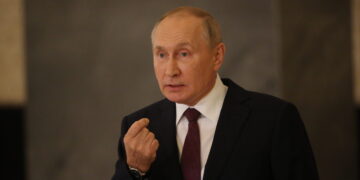



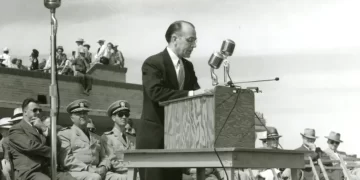

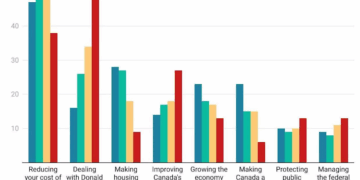
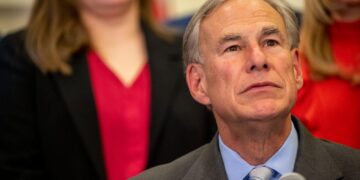
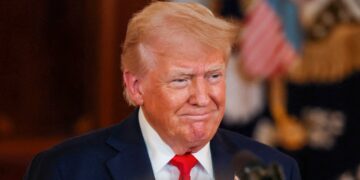






















 Reaction & Commentary
Reaction & Commentary





